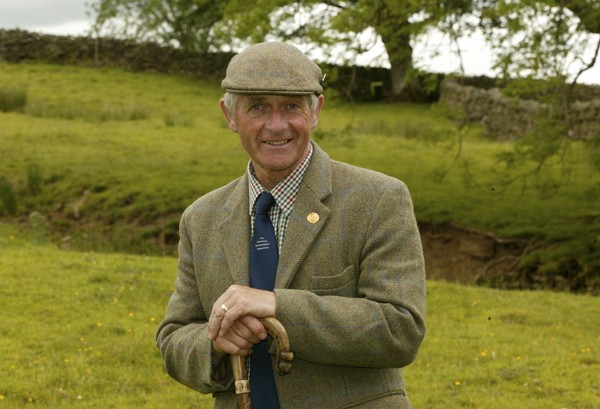Upland keeper

What a difference a year can make. Stable Edge was a less spartan household this Christmas, with the addition of carpeted floors. The year 2010 had seen us in the lee of a flood through the lower part of the house and our solitary floor covering was a carpet kindly donated by a member of the tenants? ferreting team. The sight of the dog, sitting at the top of the stairs that fateful day, staring incredulously at the mat floating at the foot of the stairs, will remain in my memory for many a year.
This time around, our newly installed underfloor drainage system saw a 4in pipe running full bore with the combination of snow melt and rainwater. But what of the coming year?
As each one passes by in the blink of an eye, I ponder what is in store both for us as individual sportsmen and as a community, which does what it can both for the countryside and for the local people that we live among. I consider plants and every living thing to be included in that list, for without them we, as wild bird managers, could not exist and succeed in what we do.
The legislators will have the biggest say, for we are all bound by laws, even though many of them are now out of date. Thus, populations of what were once threatened species are today abundant beyond the dreams of those who added them to the list. It is an enormous shame there is not greater acceptance that in order to manage individual species we must have an impact on others.
Impact of predators
One thing I do find perplexing is that there is little or no understanding that predators have an impact upon the populations of many declining species, yet the same people who deny this accuse us of managing predators to create a ?surplus? of game. So, if predators can have a detrimental impact on game species, why do they not impact upon other birds? It would be a huge step forward if we could look at the whole picture regarding wildlife management, and I hope the start of the long overdue cull of TB-infected badgers marks the opening of the door. If it eases the pain for hundreds of farmers, it will be a sign of progress. On the licensing front, we must be vigilant, as more of the sort of thing we have seen with the hooded crow debacle will continue to occur.
For those of us who burn heather, the risk of more control is also not yet over. The debate as to whether our management is a good or a bad thing continues, and I shall not forget the words of one member of staff employed by a Government department. ?If I could stop it, I would,? he said at one of our early sessions debating the future of a practice which is fundamental to the management of moorland for both sheep and grouse. Not the stance I expected of a public employee, but at least we know where we stand with him.
The dialogue continues, but for those who think all is well, do not be complacent, the case is not won yet, and the fall-out of failure to hold the line on our part would be disastrous for many species which rely on openings for nesting sites, created by burning, in the stands of mature heather. Many of the wading birds which have more or less disappeared from the lowlands now rely for their existence on the continuation of grouse moor management.
Licence renewal delays
Wearing my NGO hat, I am appalled by the manner in which some licence applications are dealt with by certain police forces. For the recreational sportsman it is bad enough when restrictions are applied for which there is no legal basis, or the force cannot process the renewal in time, leaving those who rely on their fi rearms for their livelihood to carry the can. Throw into this the proposal to impose swingeing increases for all fees and it is a bitter pill to swallow. So bitter, it will be fought all the way on the basis that there is little justification for it other than raising funds.
For those of us who require firearms to do our work, we will have little choice but to grit our teeth and pay up, but increases in the order of those proposed may well result in a reduction of gun ownership ? something we do not wish to see. Shooting must never be regarded by the public as an elitist sport, for then it is easier to attack. There will be other, as yet unknown, challenges and it is just as well we do not know what they are, as the thought of dealing with them could become depressing. However, to date, they have not stopped us from enjoying our days in the field, or by the water, and I?m sure they never will.








